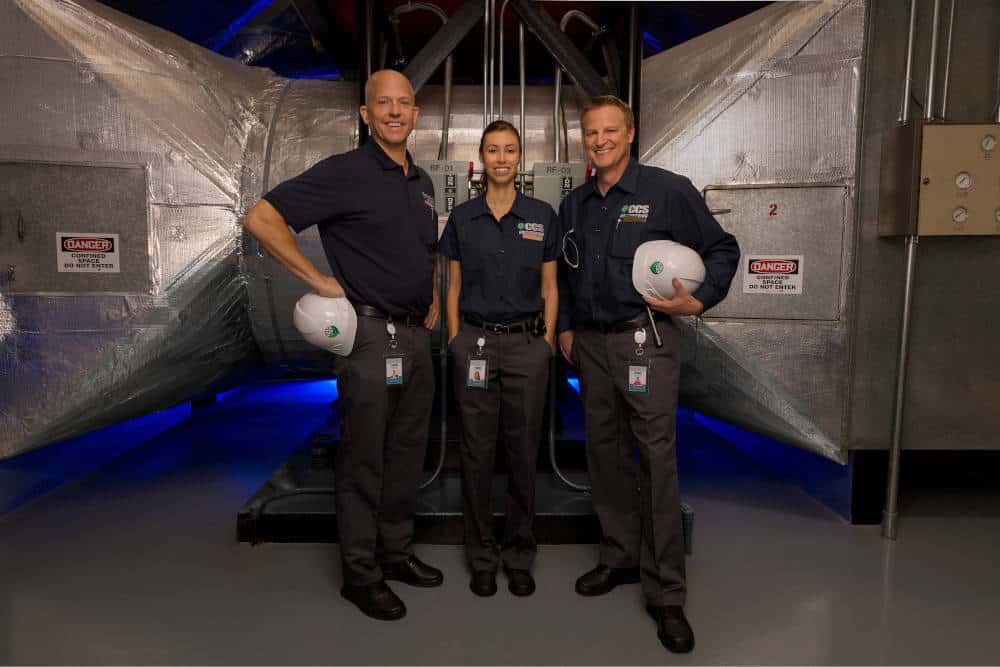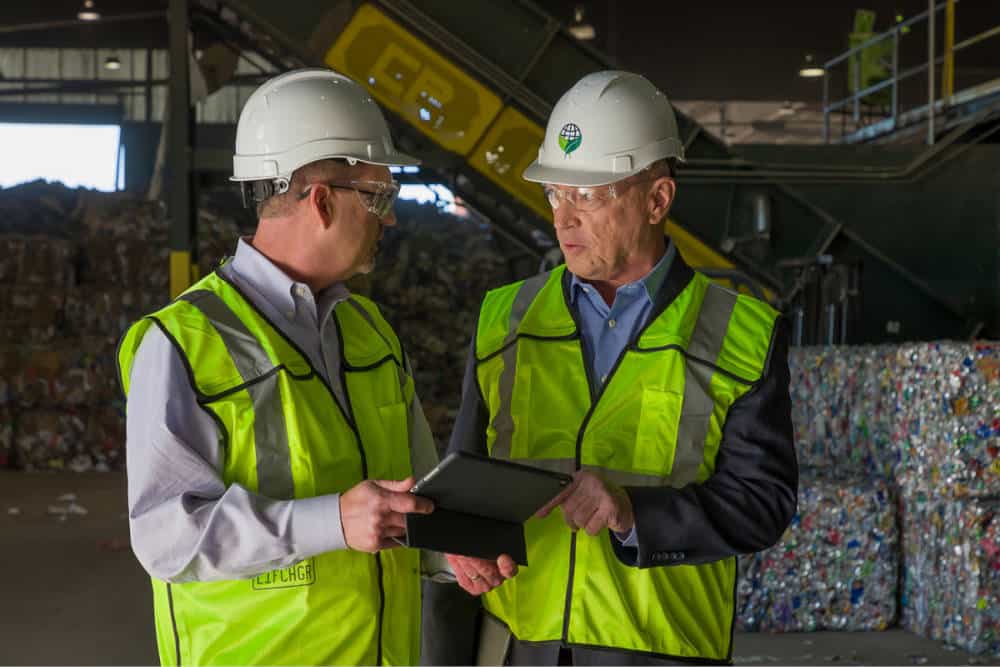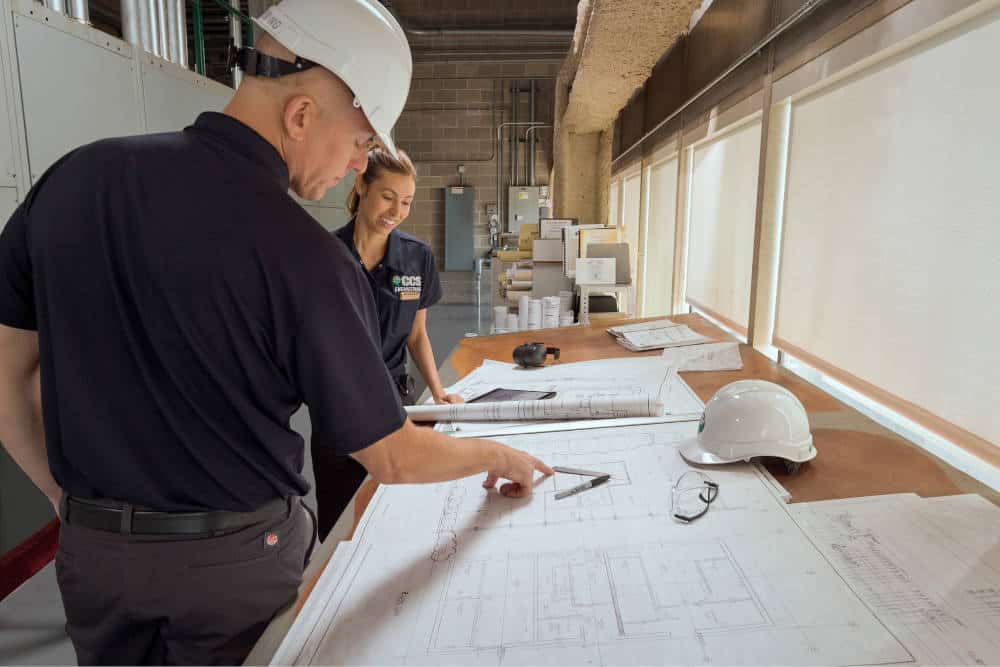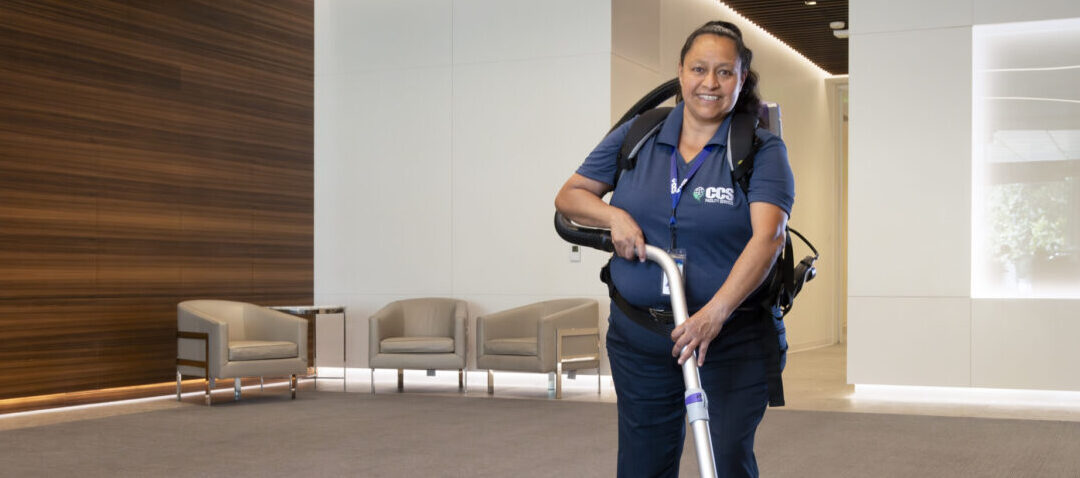A commercial facility’s long-term success and functionality are owed to the team of engineers caring for the structure, often behind the scenes. From lighting, air conditioning, plumbing, machine repair, and fire safety, engineers wear a vast array of hats to maintain comfortable conditions for people within buildings.
The importance of facility engineers is reflected in the industry’s demand. According to the U.S. Bureau of Labor Statistics, the engineering industry is one of the fastest-growing job markets of the next 10 years. Using the collective knowledge of our engineering branch, CCS Engineering, let’s explore what a comprehensive engineering team looks like in practice.

The Team
Commercial facilities generally employ one or more engineers to maintain the comfort and physical elements within buildings, depending on the size, scale, age, industry, and unique needs of a structure. There are multiple types and experience levels of engineers that may support a building, including:
Chief Building Engineer – leads the team and serves as the main point of contact for facility leadership. Chiefs typically have a decade or more of field experience under their toolbelts along with management training and any additional required state licensure. As the leader, chief engineers are responsible for ensuring the overall safety of both teammates and building occupants. This includes handling machinery, providing a safe workspace, ensuring signage and spaces are marked appropriately, etc. Chiefs prepare for worst case scenarios, proactively creating plans of action for system failures to keep the building running and get it back online in the event of an outage, flood, or any other critical disaster. Chiefs also run point on implementing regulatory compliance fixes in advance of surveys and audits.
Assistant Chief Engineer – assists the chief in overall duties and communicates designated tasks to team members. As the right hand of the team’s leader, the assistant chief is flexible and adaptable and joins or stands in for the chief at job sites to lead and direct the engineering team. Assistant chiefs generally have a similar tenure of experience as the chief along with all appropriate licensures and certifications.
Building Engineers I and II – perform preventative and corrective care within a facility as directed by the chief and assistant chief. A building engineer I typically has five or more years of experience while a building engineer II generally has three-to-four years of experience. Building engineers also have appropriate state licensures and may possess additional certifications, such as HVAC. This job by nature demands flexibility, collaboration, and great problem-solving abilities
Utility Engineer – as directed by engineering leadership, regularly monitors and maintains the building and systems, from daily work of changing light bulbs and swapping out stained ceiling tiles to ongoing larger system maintenance. This is the start of an engineer’s career pathway, as the role is considered more introductory and generally only requires two years of hands-on experience. Engineers in this position have the unique opportunity to grow their trade while working with and receiving guidance from a team of highly skilled individuals.

The Work
Facility engineers not only maintain the equipment and systems that keep a facility running but they also are the “first responders” within a building when things go wrong. When a system failure is imminent or occurs, the engineering team jumps into action: they assess the issue, identify steps for resolution, gather additional resources if needed, and implement solutions as quickly as possible.
Mechanical failures can be highly impactful to a building and those inside of it if not mitigated hastily. For example, in the event of a power outage, the lights go out, computers go down, machinery stops running – the facility effectively stops functioning. While backup generators and battery-backup devices provide some support, engineers need to work with departments in the building, monitor all backup systems, and coordinate with local utility entities to get the power online ASAP. Engineers’ roles in getting the site power back up and running is not only an issue of productivity and comfort but a safety issue as well, especially in industries like manufacturing or healthcare.
In the event of a dreaded flood, water damage can impact a building in many ways and for a long time. Electrical equipment is at risk of short circuiting, occupants would need to evacuate, and the overall foundation of the structure could be damaged from the water. Building engineers are central to minimizing damage by tackling the issue early on.

The Training
The career trajectory for engineers is tremendous, especially in this fast-growing field. Many engineers join the workforce with years of unofficial hands-on experience and continue to expand their knowledge through professional certification.
As this field requires the operation of dangerous machinery that can impact dozens to hundreds of people, certain requirements are in place to ensure engineers are properly trained for their work. The National Council of Examiners for Engineering and Surveying (NCEES) has a detailed state-by-state requirements guide available online. Some of the more universal licensing requirements are the Universal EPA Refrigerant Handler License, and the Stationary Engineer License. These are essential certifications that ensure engineers have been properly educated on the machinery they will be operating and know how to mitigate risks of danger to both themselves and building occupants.
The Result
The value of great facility engineering cannot be overstated. The late Queen Elizabeth II once said: “At its heart, engineering is about using science to find creative, practical solutions. It is a noble profession.”
Engineers are integral to the overall experience for everyone in the building – and therefore the success of a business. CCS’ Barb Thurlow says: “Our engineers are often unseen in their daily work, busy finding solutions to help the tenants and the property manager.” Engineers’ extensive knowledge and flexibility are an essential asset to facility managers who are responsible for the whole of the structure, including the people inside: staff, guests, patients, teachers, students, and on and on. Choosing the right engineering team is critical for facility management, and CCS Engineering delivers professionalism and exceptional experience to every customer. Learn more about our expert engineering division and what we can do for your building on our website.



